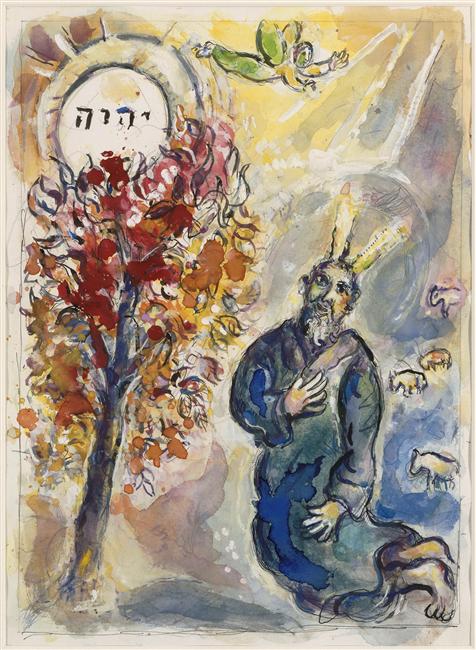Spiritual Sunday
Today in church we will hear the story of God’s call to Moses in the form of a burning bush (Exodus 3:1-15). This is one of two botanical stories we will encounter in today’s service, the other being the story of the fig tree that would not bear fruit (Luke 13:1-9). I like the idea of getting divine messages from trees.
Joseph Campbell sees the story of an instance of the hero receiving his call. As is often in these cases, Moses initially resists this call. Not only does it sound crazy, but he doesn’t feel up to the task. Of course, in the end he accepts it and leads his people to the promised land.
I can’t think of a more powerful symbol for the call: the bush burns in the mind with the force of revelation. What we do with that revelation, however, is up to us.
In the following poem Yakov Azriel, an American Jew transplanted to Israel, plays with the contrast between the bush and fire. Although fire has leveled the Temple and scorched our minds (allusions to Eliot’s Waste Land), nevertheless the leaves are still moist and retain the sacred names of God. “In the bush’s shade,” Azriel tells us, “we find a watered garden on the Temple’s sands.
In the Shadow of a Burning Bush
By Yakov Azriel
“And Moses said, ‘Let me turn aside and see this great sight; why doesn’t the bush burn?'” (Exodus 3:3)
In the shadow of a burning bush, and in
Its light, we gaze beyond the desert dunes,
Beyond the desecrated Temple ruins
Where Temple priests had once atoned our sin.
In the bush’s shadow, and its light, a thin
Unbroken thread of grace is seen, which moons
Had woven here on sunless afternoons
To be a string for David’s violin.
Behold, the bush of faith resists the flames
Which burned the Temple gates and scorch our mind,
Ignited in the night by brutish hands;
For still moist leaves retain the sacred names
Of God, and in the bush’s shade we find
A watered garden on the Temple’s sands.
From In the Shadow of a Burning Bush: Poems on Exodus (Time Being Books, 2008)


